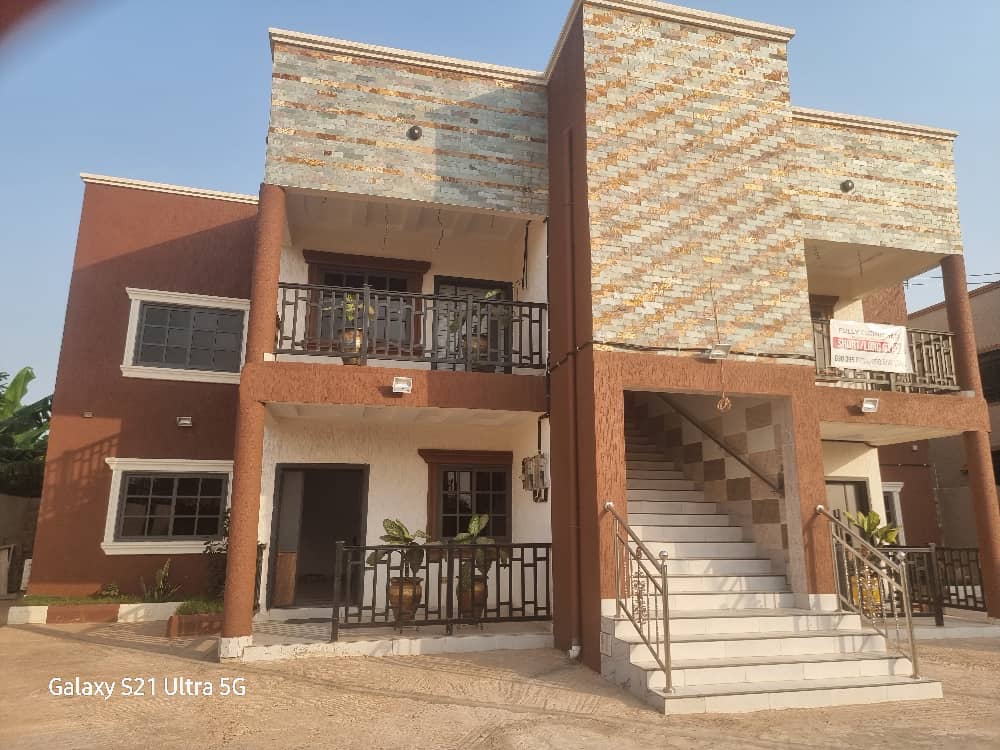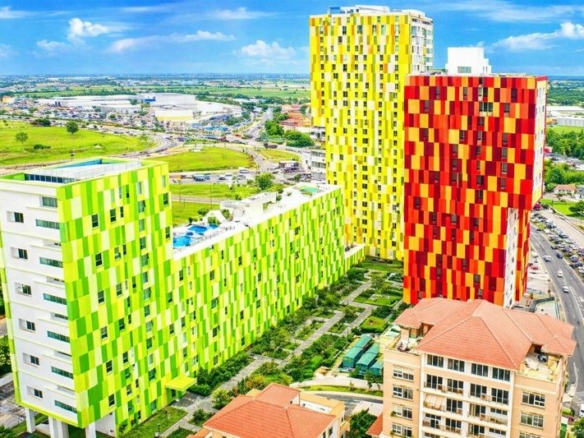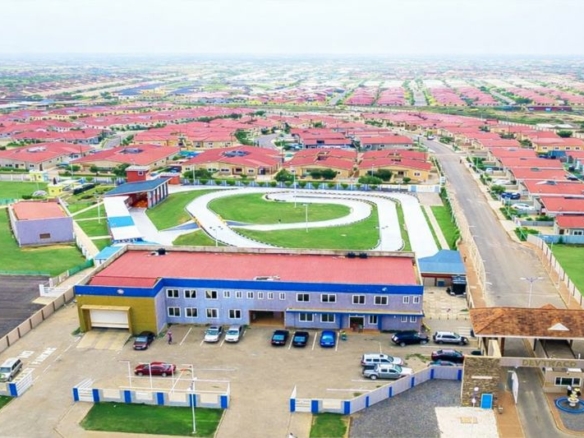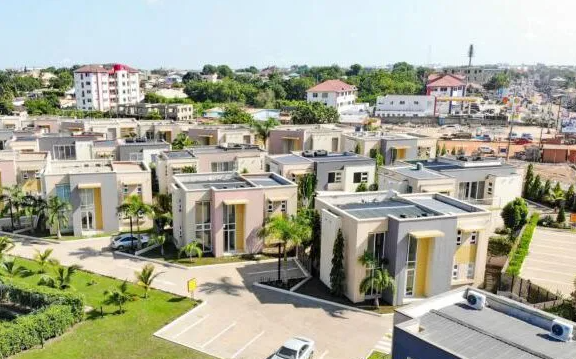Mixed-use developments in Ghana represent the fastest-growing sector in West Africa’s property market, fundamentally transforming urban living across Accra, Kumasi, and emerging cities. With Ghana’s real estate market valued at $513.30 billion in 2024, these integrated communities are addressing critical urbanisation challenges while delivering impressive 8-12% annual returns for investors.
Ghana’s urban population has reached 58.58% of the total population, growing at 2.97% annually, creating unprecedented demand for efficient, convenient living solutions. Ghana real estate trends 2025 show mixed-use developments leading this transformation by offering comprehensive live-work-play environments that modern Ghanaians increasingly demand.
The Urban Revolution Driving Change
The shift toward live-work-play Accra environments stems from Ghana’s rapid urbanisation challenges. Cities like Accra have expanded spatially by 78% between 2001 and 2014, creating severe traffic congestion and lengthy commutes that mixed-use developments directly address through integrated planning.
Economic growth of 6.3% in 2024, coupled with an expanding middle class, is driving demand for modern amenities and convenient lifestyles. Young professionals, representing Ghana’s median age of 21.3 years, increasingly prioritise communities offering seamless access to work, shopping, and recreation within walking distance.
Sustainability concerns are also fueling demand for eco-friendly real estate initiatives. Mixed-use developments reduce carbon footprints by minimising transportation needs while incorporating green building practices that achieve 20-30% energy and water savings compared to traditional developments.
Mixed-Use Developments Ghana: Compelling Investment Benefits
Urban property investment in Ghana offers opportunities in mixed-use projects that provide diversified revenue streams through residential rentals, commercial leases, and retail income, creating stability against market fluctuations. Property values in mixed-use developments typically show 8.2% annual price growth in prime Accra locations.
The integrated nature creates vibrant communities that command premium rents and attract long-term tenants, contributing to investment hotspots in Ghana. For residents, these developments dramatically improve quality of life by reducing commuting costs while providing convenient access to amenities and fostering natural community building through shared spaces.
Leading Projects Reshaping Ghana’s Landscape
Ghana mixed-use projects showcase innovative integrated development approaches. Appolonia City spans 2,325 acres with a $250 million investment, combining residential units starting at $99,750, a 70-acre business park, and comprehensive infrastructure serving 25,000 planned residential units.
Airport City Accra developments demonstrate successful public-private partnerships, with 19 active investors creating a modern urban hub featuring international hotels and One Airport Square, Ghana’s first green-rated building, achieving 4-star certification. The strategic airport location attracts business travellers and corporate tenants.
Accra Mall represents Ghana’s first large-scale shopping centre with a $36 million investment, attracting 7 million annual visitors and housing 75+ stores. The Tower Residence introduces smart home automation technology, setting new luxury standards with units starting at $98,000.
Creating Economic Growth and Investment Hotspots
Accra property market dynamics show how mixed-use developments create multiplier effects, benefiting entire neighbourhoods. These projects attract additional businesses, improve infrastructure, and increase surrounding property values. Airport City’s success has catalysed broader corridor development, while Appolonia City is spurring industrial growth through its business park component.
Employment generation extends beyond construction to permanent positions in retail, hospitality, and professional services, contributing to local tax revenues and municipal development initiatives.
Navigating Investment Challenges
Despite promising opportunities, mixed-use development faces regulatory challenges requiring careful navigation of zoning regulations managed by the Town and Country Planning Department. Property management complexity increases with multiple use types requiring specialised expertise in residential, commercial, and retail operations.
Infrastructure requirements often exceed single-use projects, requiring significant upfront investment in utilities and technology systems that can strain budgets without careful planning.
Smart Investment Strategies
The National Housing and Mortgage Fund offers subsidised loans at 11.9-12% interest rates, significantly below market rates of 22-32%. Foreign investors must meet GIPC requirements, including minimum investments of $200,000 for joint ventures, though proposed amendments may eliminate these minimums.
Project viability benefits from Ghana’s 6.3% GDP growth, rental yields of 8-12%, and tax incentives including 5-year exemptions on rental income.
Your Gateway to Opportunities
GhanaPropertyFinder.com connects investors with mixed-use developments in Ghana opportunities across the country. Our comprehensive database features detailed listings for established projects and emerging developments, while expert agents provide guidance on regulatory requirements and financing options.
Frequently Asked Questions
Q: What returns can investors expect from mixed-use developments?
A: Mixed-use developments typically achieve 8-12% annual returns through diversified income streams from residential, commercial, and retail components.
Q: Are foreign investors welcome in Ghana’s market?
A: Yes, Ghana welcomes foreign investment through the GIPC framework, requiring a minimum $200,000 investment for joint ventures.
Q: How do these developments address urbanisation challenges?
A: They reduce traffic congestion by integrating work and residential spaces while using land efficiently and providing walkable amenities.
Q: What financing options are available?
A: Options include traditional bank loans, subsidised NHMF loans at 11.9-12%, and emerging REIT structures.
Q: Which cities offer the best opportunities?
A: Accra leads with established infrastructure, while Kumasi offers emerging opportunities with lower entry costs.
Ready to explore Ghana’s mixed-use development opportunities? Browse our latest listings and connect with expert agents at GhanaPropertyFinder.com to discover your ideal investment in Ghana’s urban future.






